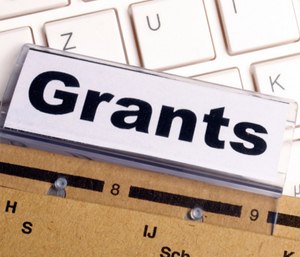
Surrounding yourself with resources and support is a great way to get a leg up on the competitive grant landscape
Updated September 21, 2017
Successful grant writers use clear, specific language to focus the reader’s attention and to persuade the reader to fund their proposal.
How do you learn to write a compelling grant request? How can you improve on the applications you’ve already written?
Here are three seemingly obvious resources that all too often are overlooked by new and experienced grant writers.
The best way to improve your basic skills is to ask for guidance from your colleagues. If you heard about your neighboring county getting a grant for a project, reach out to them for advice and guidance on their success.
If possible, read previously submitted proposals available from your own organization and other departments you collaborate with. For example, if you are looking to build a community paramedic program it may be beneficial to ask your collaborators for past successful grant applications for reference while utilizing their experienced personnel for guidance.
The internet can be a wonderful resource! There are websites geared toward grant writing in EMS or more generally for government or public services. However, do not be afraid to look at non-profit resources. Ultimately, the majority of EMS is a non-profit business and has multiple correlations with the non-profit sector.
Grants.gov is a fantastic guide to all grants that are government related with training documents and videos.
Catalog of Federal Domestic Assistance is a must-read for those applying for federal grants. The Catalog of Federal Domestic Assistance is a government-wide compendium of Federal programs, projects, services and activities that provide assistance or benefits to the American public. It contains financial and nonfinancial assistance programs administered by departments and establishments of the Federal government.
Congressional Research Service reports cover writing proposals for both government and private foundations grants, including gathering preliminary information, developing proposal ideas and gathering community support.
Grant Writing Tip Sheets include general grant writing tutorials as well as specific information about applying for National Institutes of Health grants.
EMSGrantsHelp.com provides its members the most comprehensive resource for EMS grant listings, information and resources. Register for free access to the most extensive EMS grant database ever created.
The adage "practice makes perfect" has a ton of weight in the grant writing industry. While reading grant writing materials, books and other resources are helpful nothing compares to the experience of writing an application yourself. A good exercise is to let your colleagues edit your work, especially those who are experienced grant writers.
Never forget that grant makers will often give you feedback on your proposal or application. Getting tangible feedback from those who choose the funded projects is one of the best ways to learn and grow as a grant writer.
Surrounding yourself with resources and support is a great way to get a leg up on the competitive grant landscape. Building your grant writing skills will lead to successful proposals and consistent funding. Remember that you are always a student of medicine as a provider. That same drive and dedication that lead you to excel as an EMS provider must be applied to your grant proposal!
Always remember that the experts at EMSGrantsHelp.com , FireGrantsHelp.com and PoliceGrantsHelp.com are here for your needs!
Copyright © 2025 FireGrantsHelp.com. All rights reserved.
